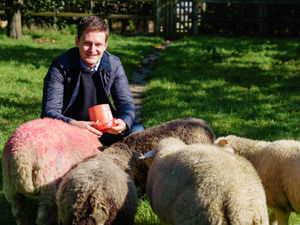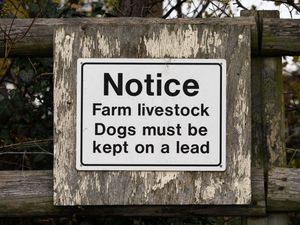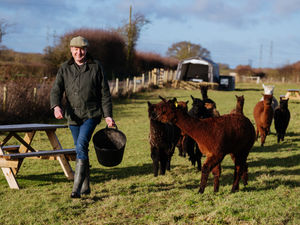Farms continue to face shortage of seasonal labour
A shortage of seasonal labour is seeing crops being left to rot and farmers considering investing in robotics as a replacement.
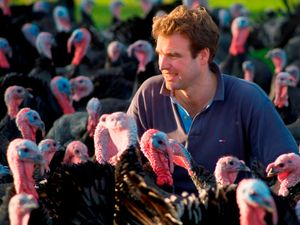
While the lack of lorry drivers and the Covid ‘pingdemic’ has hampered supply chains in the industry, finding people to work on farms has also become a problem due to a lack of seasonal agricultural workers available in the country.
The National Farmers' Union has repeated calls for help from the Government. In response, the Government has been looking at ways to help the sector recruit more domestic labour and increased the number of visas available under the Seasonal Worker Pilot (SWP) from 10,000 in 2020 to 30,000 this year.
One farming family who have relied on seasonal workers from abroad is the Cartwrights, who have been farming at Home Farm, Condover, near Shrewsbury, since the 1930s.
They specialise in growing potatoes and rearing KellyBronze turkeys, as well as growing other arable crops including wheat, barley, oats and oil seed rape.
Farmer David Cartwright said: "We are alright for this year due to the Seasonal Worker Pilot, but down the line we could be impacted and are not quite sure where the work will come from.
"We have had a relationship with a Polish family for about 15 years and they have sent people out to us as and when we needed it, which has worked really well. But then the Government got involved, things got changed, and it has got very complicated."

Mr Cartwright said through the summer they usually employ about eight seasonal workers to help with the potatoes and 15 helping with the turkeys over a two to three-week period before Christmas.
Looking ahead, he said he is considering investing in robotics to help cope with the shortfall in workers.
"Students from this country ask about the money but don't want to work the hours. They would rather be sat at a computer.
"I will be looking into robotics to help with the potatoes. It will be a £100,000 investment but it will replace two people."
An NFU labour providers survey, which covers recruitment of seasonal workers for horticultural fruit, veg and flowers businesses, found that in July there was a 34.5 per cent recruitment shortfall.
It also found returnees from the previous season made up 45 per cent of all recruits in July, and 11 per cent of workers recruited in July did not arrive to take up their contract.
Edward Garratt, NFU Shropshire county adviser, said: “Seasonal workers are absolutely crucial to help pick, pack and grade fruit and vegetables grown on Shropshire farms, ensuring it reaches our supermarket shelves for people to enjoy.
“Recruitment of seasonal workers continues to be challenging as it has been for a number of years for growers.
“The Government’s Seasonal Worker Pilot scheme has been a key factor in keeping those shortages to a minimum, which is why it’s important we see that scheme introduced permanently after the pilot.
“We continue to speak with Shropshire growers and we are also mindful of the significant labour challenges across the entire food supply chain, particularly in food processing and transportation.”

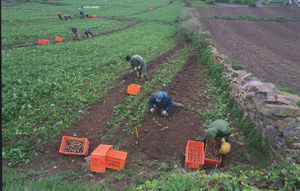
Speaking at UK Dairy Day in Telford last week, Michael Smale, chairman of Holstein UK, said more still needed to be done to address the issue.
"A lack of seasonal workers has been massive – not just now but for those who grew fruit and veg earlier in the season. This needs to be addressed.
"Some of the farmers have had to do more work themselves and some of the crops have been lost. We haven't got the migrant workers we used to have and it is skilled work for the pickers who come in. They work at a fast rate and pick the quality which you would expect to see on the supermarket shelves.
"It is the same in the dairy industry, you rely on migrant workers who come in on short-term contracts."
Fresh Produce Consortium CEO Nigel Jenney said he believed there were fewer workers who had come to the UK via the SWP than the 30,000 permitted for 2021.
“I’m aware of companies having to bypass certain crops, particularly in extremes of weather. Harvesting is more difficult during extreme weather because the crops mature much more rapidly in certain circumstances and it makes it more difficult to manage and not waste the crop,” he said.
“No matter how hard these businesses try, they simply can’t fill the vacancies, either through direct employment or through using labour agencies. At this point in time the people just aren’t there.”


